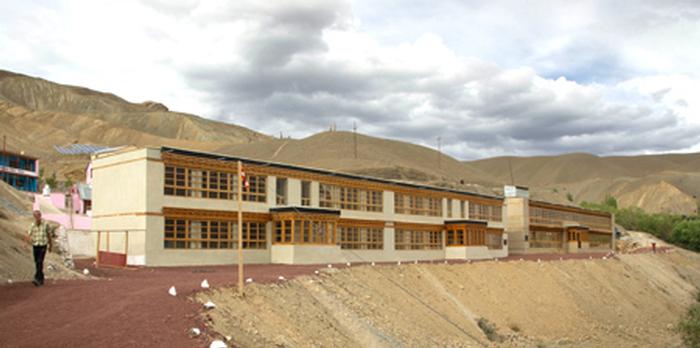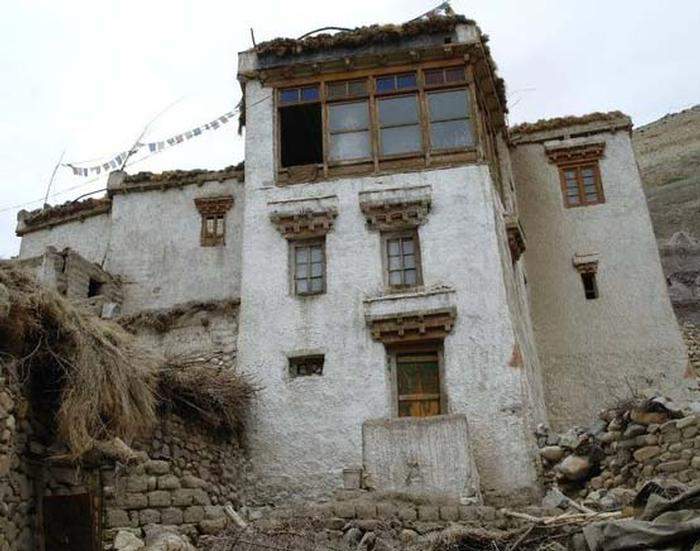Chiranjivi Jai Mankoo and Samriddhi Pandey ProposalAdapting Traditions In The New World Order“Survival depends upon adaptability.” This law governs the lifestyle of humans and the way they formulate their immediate environment. Creation of functional spaces and their building envelope is done to provide a comfortable and habitable space that “survives” in adversities. When the world seeks to learn a lesson in climate resilience,it is inevitable to revisit the past in order to understand the sustainable features of traditional vernacular architecture which has stood against the test of time and nature’s fury. Leh and Kargil,two districts of Ladakh,in the sensitive Himalayan ecosystem is the coldest region in the world to be continuously inhabited by humans.Ladakh is badgered by natural disasters,with local inhabitants affected each year by floods,avalanches and landslides,especially during the spring and summer months when snow and glaciers melt and remains inaccessible during the months of winter. In a typical ladakhi residence,inhabitants have harvested the sunlight together with the employment of the vernacular architecture exhibiting the passive measures for climate control.The houses have a unique spacial configuration to deal with the climatic conditions along with usage of native materials and techniques.Usage of vernacular materials like mud bricks,quarzite stones,poplar,grass and timber helps in maintaining resilient climatic conditions.Typically,houses are double storeyed where ground floor is for keeping the livestock,storage and collection of toilet waste,while the upper floors are used for living purposes. In 2014,the collaborative efforts of the locals of Mulbekh,Kargil along with the architectural firm Archide bore fruit in the form of the New Block of Spring Dales Public School,the only school in this village to provide proper infrastructure for education.it has adapted vernacular techniques while also contemporizing by testing vernacular practices of the area and making suitable changes like improving the mud consistency to make it less prone to shrinkage due to seasonal change and installation of a solar composting toilet,which uses the sun’s energy to create a ventilation chimney.The school is an inspiration for all those future projects of the area that are vying for a disaster resilient structure with a modern touch. Ladakh now faces a situation where mindless imitation of western architectural styles has resulted in damage to the nature as well as they couldn’t survive the trials posed.Successful implementation of vernacular values in contemporary context is challenging in vulnerable locations is an art that needs to be learnt by future architects in order to tackle the wrath of nature and climate change.Careful study of the two successful examples one traditional in nature and the other contemporary teaches us the following lessons Firstly,The Social Factor: Respecting the indigenous knowledge of the local communities by including them in the decision making processes. Secondly,Bioclimatic Design: A Contemporary approach towards a sustainable vernacular architecture that is also disaster resilient to be adapted and buildings to be designed in direct response to local climate,materials,geology and techniques. Lastly,Energy Efficiency: From using cow dung for insulation/fuel,reducing the carbon footprint during construction and in households can make a huge impact on the ecosystem. “We borrow from nature the space upon which we build”.Tadao Ando Additional Help and InformationAre you in need of assistance? Please email info@berkeleyprize.org. |
|


